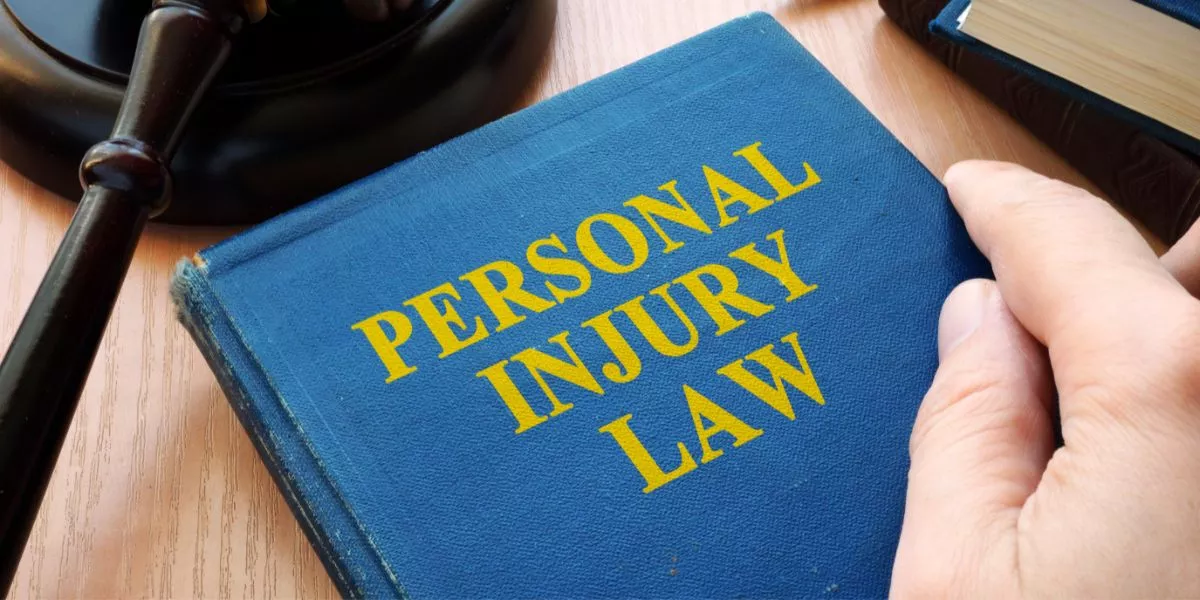Lincolnton Personal Injury Lawyer
Lincolnton Personal Injury Attorney
A personal injury claim occurs when you or a loved one is injured due to the negligence or misconduct of another person. If this negligence or misconduct was the cause of someone’s injuries and other damages, they can file a claim against that party. This legal action is easier and more likely to succeed when you work with a qualified Lincolnton personal injury lawyer.
Personal injury claims may include accidents on dangerous premises, injuries from a dog attack, and even workplace accidents. You may be able to hold a party accountable for your medical bills, property damage, lost income, and other damages. When someone fails to uphold their duty of care, you should not have to be responsible for these costs.

Legal Support From Lincolnton Personal Injury Attorneys
Filing a personal injury claim in Lincolnton can be essential to your continued financial stability as you recover, but it is rarely easy to file while you are healing and potentially in significant pain. With more serious injuries, you may have to relearn how to move, manage daily tasks, and live your life. It is incredibly beneficial to have an experienced attorney by your side as you file.
Not only will the process be much easier, but you are more likely to have a successful case that obtains the maximum available compensation. Many people are wary of hiring a lawyer after a costly injury, but even straightforward cases can be hard to win. An attorney takes some of the stress off you while increasing your chances of success.
At the Law Office of Lyndon R. Helton, PLLC, we have been aiding our community in Catawba County and the surrounding area for more than 23 years. We get to know you, your family, and what you need from your personal injury case. Then, we can handle the claim for you, letting you rest in the knowledge that we have your interests at heart.
Lyndon R. Helton has had experience as a defense attorney for insurance providers, giving him a unique insight into how to navigate and negotiate these cases against insurance companies. Now, he focuses on protecting the rights of those wrongfully injured and fights for the most compensation available. When you have a personal injury claim, our team has the resources and knowledge to help you with both complex and clear cases.
The First Step Is Proving Liability
To file your claim successfully, you must file it against the party who was at fault for your injuries. Determining the party or parties that are at fault can require in-depth investigation, eyewitness testimony, medical documentation, CCTV footage, and other evidence. Once the cause and party that is allegedly at fault are determined, you must then be able to show that they are liable.
To hold another individual or group liable, there are several things you must prove first. The majority of personal injury claims are based on negligence, meaning that there was no intention to cause injury, but the party can still be held liable. To establish fault and liability based on negligence, you must prove:
- Duty of Care: The party that you are claiming is at fault must have owed you a duty of care. There are different levels of duty of care, depending on the location and relationship between the at-fault party and the injured party. Most individuals owe each other a duty of care to not cause unreasonable or unnecessary risk of danger to others. Property owners have a duty of care for those on their property, and medical professionals owe their patients a professional level of care.
- Breach of Duty: The actions or inactions of the other party breached the duty of care that they held for you. If a driver fails to follow road signs or lights, this is considered negligence. An employer that fails to address workplace hazards in a reasonable period of time could be considered negligent.
- Causation: There must be a direct causal link from the party’s breach of duty to the accident or incident that caused the injury. An individual being negligent is not enough for a claim. You must be able to prove that your injury and other damages would not have occurred without the other party’s actions or inactions.
- Actual Damages: You must also be able to prove that you suffered economic and noneconomic damages as a result of the injuries and other damages from the incident.
When an individual causes your injury because of intentional or criminal negligence, there may also be a criminal case. A criminal case could include restitution, but this is not always so. An attorney can help you determine the necessity of a personal injury case for your situation.
Types of Personal Injury Claims We Handle
There are many cases that are considered personal injury claims, and it is important to work with an attorney who has experience relevant to your type of case and injury. This experience means that your attorney can better understand the damages available to you, know the most effective way to investigate the incident, and more effectively handle your claim. At the Law Office of Lyndon R. Helton, PLLC, we have experience in some of the following personal injury claims:
Automobile Accidents
Car accidents, truck accidents, motorcycle accidents and other motor vehicle accidents frequently lead to insurance claims. These may be against an at-fault driver, a trucking company’s insurance provider, or another insurer. If an insurance claim does not cover your losses, or the at-fault party does not have the required insurance, you could file a personal injury claim for additional damages. A more severe accident is more likely to require this type of claim, and these accidents can also be more complex to determine fault.
Work-Related Injuries
Nearly every employer is required to carry workers’ compensation insurance. This coverage is essential for employees who are injured on the job, providing them with medical bill coverage and some of their lost income. This coverage also protects employers from personal liability.
However, this is not true in every scenario. An employer who purposefully causes an injury or is grossly negligent in handling workplace hazards could still be held liable through a personal injury claim or even a wrongful death claim. A personal injury claim may also be filed if you were injured while at work by a third party.
Premises Liability and Slip-and-Fall Accidents
Public and private property owners are responsible for safety and reasonably hazard-free premises. If you are injured because a property owner fails to warn against or remove a hazard, you may have a personal injury claim.
Dog Attacks
Dog owners are strictly liable for the damages done by their pets. A personal injury claim may be able to recover the losses from a dog attack.
Catastrophic Injuries
Catastrophic injury claims are the result of severe and permanent injuries, and they require unique damages compared to other forms of injury. The long-term potential complications and care needed for these injuries mean that settlements must be much more substantial.
FAQs for Lincolnton Personal Injury Lawyers
Q: What Does a Personal Injury Lawyer Explain?
A: A personal injury lawyer helps you file a personal injury claim properly and within the deadline. They also advocate for your interests during negotiation or litigation. Your attorney can investigate the incident or accident that caused your personal injury, determine the party or parties at fault, and help you get the compensation you deserve from those parties.
If there are any unexpected complications with your case, your attorney can help address those to make your case more likely to succeed.
Q: How Long Does It Take to Settle a Personal Injury Case in North Carolina?
A: It may take between several weeks, several months, or up to a year or longer to settle a personal injury case in North Carolina.
Unfortunately, it is very hard to anticipate the exact amount of time your case will take, as it will rely on several factors, such as how straightforward liability is, the severity of your injuries, the number of at-fault parties, and whether your case goes to court. An experienced attorney can review the individual factors of your situation to have a more accurate estimate of the time your case will take.
Q: What Is the Statute of Limitations for Personal Injury in North Carolina?
A: In North Carolina, the statute of limitations for personal injury claims is three years from the date the injury was sustained. The statute of limitations is a legal deadline by which you must file your claim. If you do not file by this time, you will likely lose your right to obtain compensation. There are some situations where the statute may be extended, such as if you discovered the injury at a later date. Other claims must be filed in less time, such as a claim against a government agency or employee.
Q: How Is Pain and Suffering Calculated in North Carolina?
A: There is no set way to calculate pain and suffering in North Carolina. Pain and suffering damages are noneconomic, meaning that they are subjective to each situation. They should accurately reflect the severity of physical pain and emotional suffering after an accident.
For more serious injuries, long-term disability, or permanent harm, pain and suffering damages are likely to be higher. The only personal injury cases that place a limit on pain and suffering are medical malpractice cases. An attorney can help you calculate a fair and maximized amount of noneconomic damages.
Contact the Law Office of Lyndon R. Helton, PLLC, in Lincolnton
Our team, serving Burke, Caldwell, and Catawba Counties, want to help you recover from your injuries. Contact our team today and see how we can represent you.

